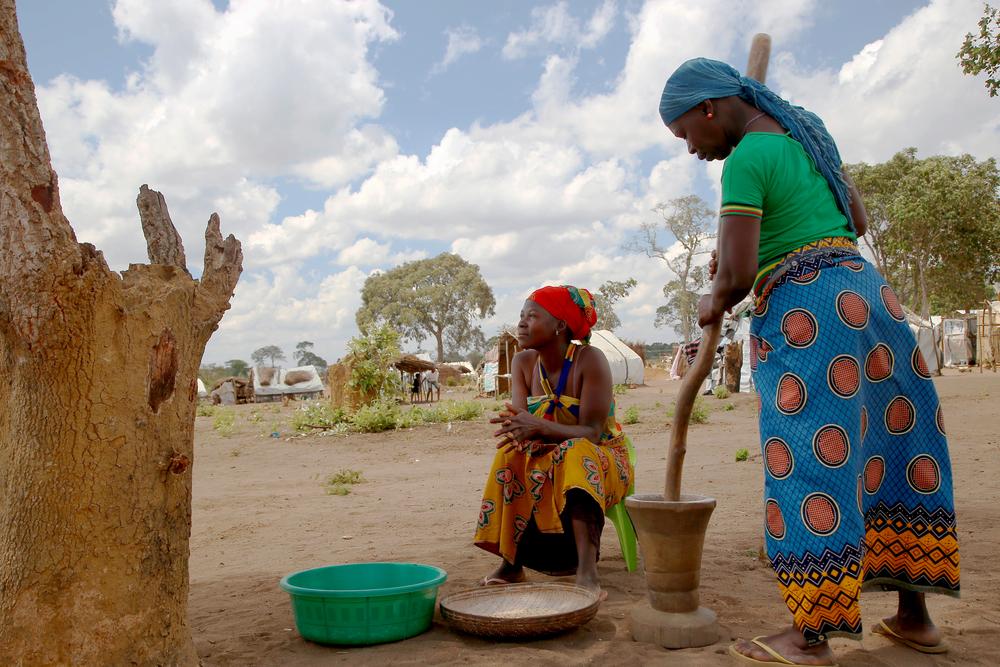Maganja Vetu: "I’ve lost everything I got through my photography work"
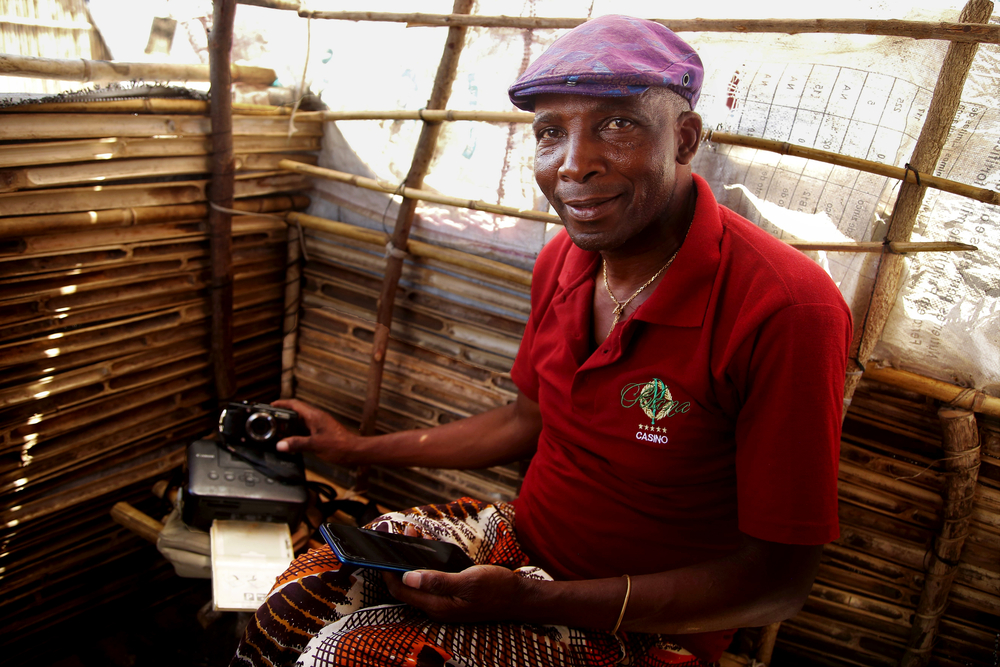
“I am from a village in Muidumbe district and I am 56 years old. Since July I have been living in the transit site of Nangua 2, near Metuge. My name, Maganja, means the ‘friend of friends’ in the Mwani language. We are over 1,200 families from various districts here. The latest ones to arrive are from Quissanga – they arrived after an attack took place there in September. My wife and I have eight children aged between three and 21. They are all in the capital, Pemba, with their mum because they have to study, but things there are very expensive. That is why I live in this site. To pay their tuition fees we do temporary jobs.
We fled from the village before the attackers arrived. They started shooting in nearby towns and we escaped as best as we could. I have lost the house and the car and I have no way of getting my things back. We haven't received much support so far. The first aid distribution was this week.
I used to work as a driver and photographer. I took photos for everyone. I have a Canon camera. I also travelled around with this little Olympus camera and a portable printer. The last photo I took was during a church function. Everything I got in life was through the work with the camera. For each photo I charged 100 meticals [1.5 US$]. I took photos and videos of traditional ceremonies, initiation rites and other things. I also did montages and I did photos for official documents, in colour and in black and white.
Some people from my town have returned, but I don't have the money to go there, check how things are and come back again.”
Filomena Bentu: "Throughout my life I’ve been through difficult times, but what we are experiencing now is worse"
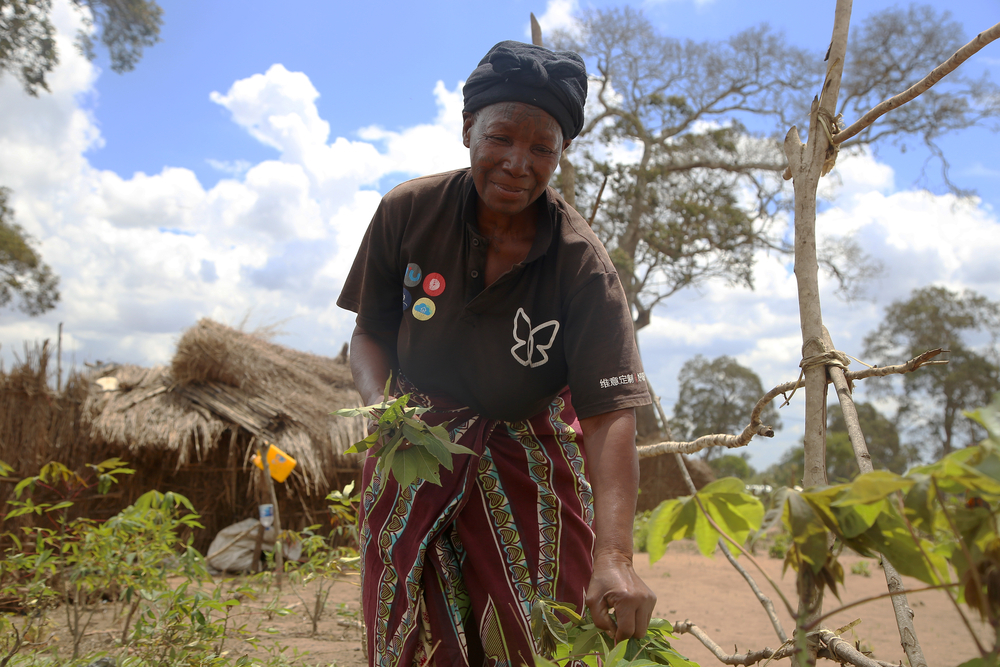
“I am 80 years old and I am from Muambula village in Muidumbe district. I left my home in October 2020 after an attack. They broke into my poultry yard and destroyed it. It had eight spaces with 100 chickens each. Now I have nothing. I arrived in Mueda after spending two weeks in the forest and since April of this year I have been in the Eduardo Mondlane resettlement site.
I have eight children and five grandchildren. Some relatives went to Montepuez, others to Pemba and some even to Nampula province. Here in Mueda I am alone with three of my grandchildren, who are three, six and nine years old. We live in a tent made of plastic sheeting, sticks and clay. The kitchen is at the entrance and we have a bathroom outside and a small garden where I plant cassava and sweet potatoes. I pick the cassava, press it and then we eat it. I haven’t lost any family members, but I have lost everything I owned and this is terrible.
The scarification on my face is a ritual from Makonde culture. I had them done when I was 15 years old. I spent three days in a row with my face swollen and unable to eat because I had to cut my face with blades and put a pigment made out of charcoal into the wounds. Before it was commonplace, but after independence in Mozambique it was stopped. So now we are all together.
Throughout my life I’ve been through difficult times. During the Portuguese colonial period, many people could not study, there was a lot of discrimination and they used us to do heavy work. We were mistreated if we protested. After independence, the civil war was also tough. But this conflict we are experiencing now is worse. I don't know how it will end. In November I returned to my village one day to see how things were. I went in a van with other families. There are people who are returning home, but I am not completely reassured. We want to have peace and each one of us wants to be happy at home. Until that happens, I ask the world to please continue helping us to alleviate our situation.”
Biata Matías: "When I go to fetch water it can take all day"
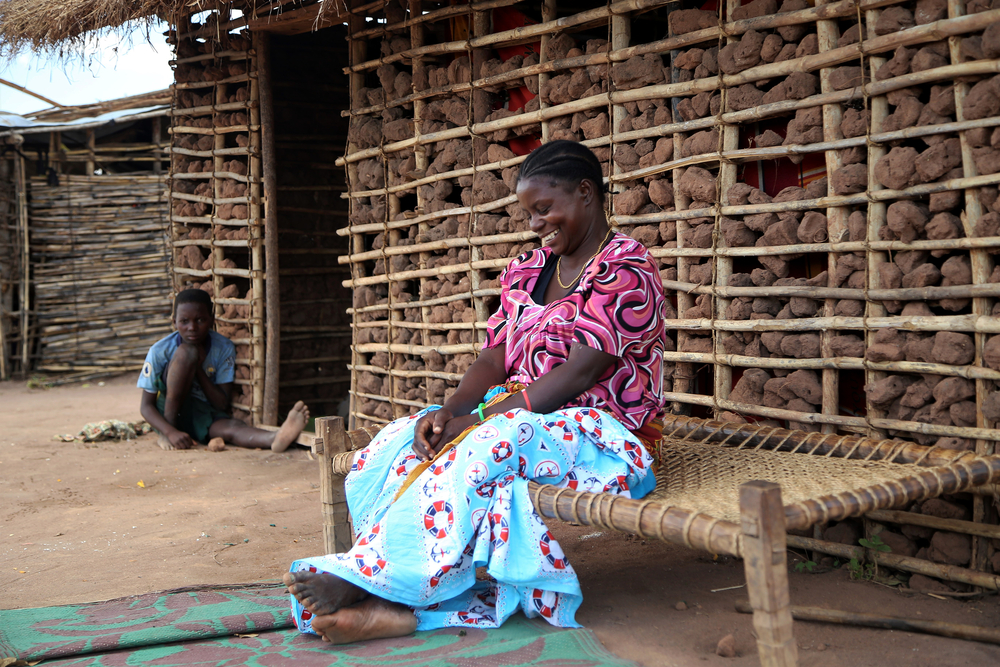
“I am 38 years old and I come from a village in the Macomia district. I fled the violence in August 2020. The attack caught us asleep. After passing through a few places I ended up settling here in Nasitenge. There are about 12 of us in my family. At first we lived in local people’s houses. The resettlement camp was set up this year. We don't have any water here. You have to walk a long way for it. When I go to fetch water I take a 20-litre bucket with me. It takes me an hour to get there, another hour to get back, and then you have to wait there… it can take all day.
I’d like to go back home but I have no money. Now everything is dangerous. I wonder why this war does not end. We are running all the time. In mid-November, a group (of insurgents) approached Namatil and killed some people. Everyone – hundreds of families – fled from here temporarily because we were afraid. Some of us went to the forest and others to other places. All we took with us was a few buckets of water, some cooking utensils and some clothes. As we had young children with us, my group moved slowly. After a couple of days, when things calmed down, we returned to Nasitenge.”
Ali Mamadi: "Fishing was my life and now I don't know what to do"
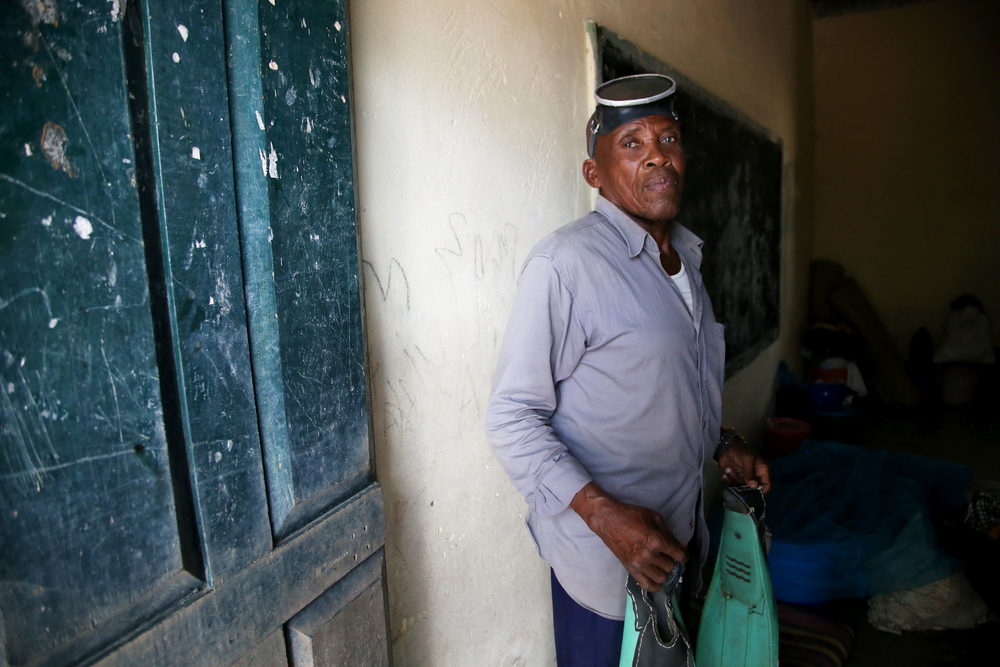
“I am 77 years old and I come from Mocímboa da Praia. For almost four decades I was a fisherman. On a good day I could get at least 10 pounds of lobster and fish as big as my arm. I sold a lot of produce to Chinese merchants. Both of my wives were engaged in agriculture, especially harvesting rice, and altogether we had a balanced life. I had a four-meter-long boat with space for 30 people. Its name in Swahili means that it cannot belong to anyone. With the money that boat gave me, I built our house.
When I left Mocímboa in October 2020, I found refuge on the island of Ibo for several months. I continued fishing as best I could until they no longer let me use the boat. I went back recently to Mocímboa to work on cleaning up parts of the city, as a lot of infrastructure and buildings have been affected. People want to live there again, but the authorities haven’t given the green light yet. That is why I came to Nanili two weeks ago, while we wait to return.
We are hungry because we haven’t received anything since we arrived. A relative transferred 500 meticals [7.8 US$] to me by phone, and with that I have been able to get a few things. I am staying at this school. Sixty of us sleep in one of the classrooms. I brought some of my fishing kit with me – fins and snorkel and goggles. I have lost practically everything. Fishing was my life and now I don't know what to do.”
